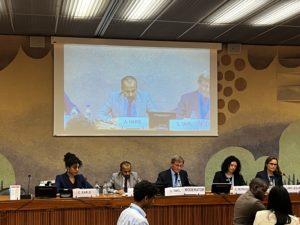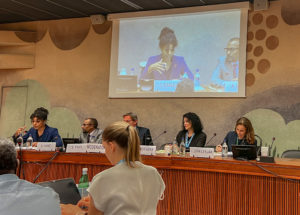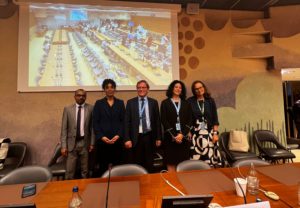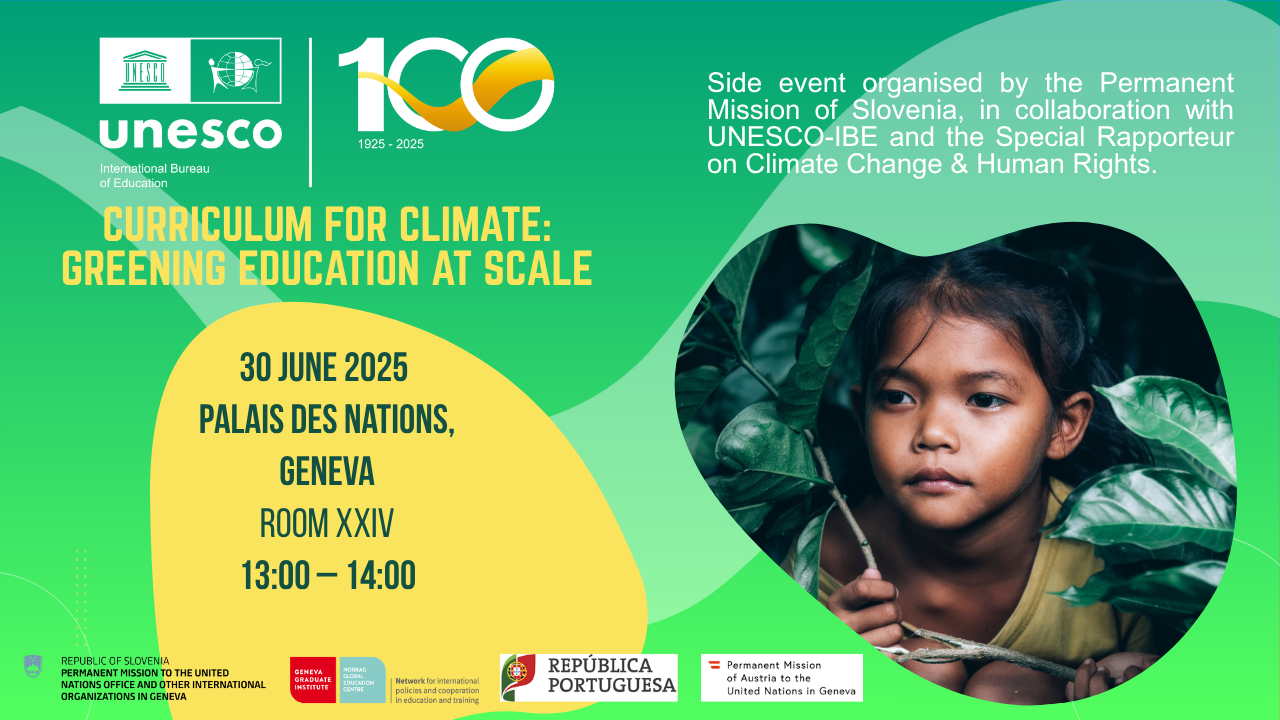Event Highlights: Curriculum for Climate - Greening Education at Scale
The climate crisis is not only an environmental emergency, but also a crisis of inequality and epistemic injustice—one that mirrors and deepens global power imbalances in both its material consequences and the ways knowledge is produced and valued. Education plays a critical role in addressing these challenges. As the Special Rapporteur for Climate Change, Elisa Morgera has emphasised, systemic transformation demands more than defossilising the economy—it also calls for defossilising knowledge. This imperative extends to how we shape curricula, ensuring they reflect diverse perspectives and equip learners to engage with the complex realities of a changing world.
UNESCO-IBE was honoured to co-host a side-event on this important issue—Curriculum for climate: Greening education at scale, at the 59th session of the Human Rights Council; with Dr Jana Urh Lesjak from the Permanent Mission of Slovenia, UNSR Climate Change Elisa Morgera, Mr Adam Hamid from the Permanent Mission of the Republic of the Maldives, and NORRAG’s Youth Engagement Specialist, and the Global Partnership for Education’s Youth Leader for Switzerland, Carolina Earle.
Speaking on behalf of NORRAG, Carolina Earle called for climate education that is not only green but also just. In her remarks, Earle urged decision-makers to move beyond curriculum models that treat youth as passive recipients of knowledge. Instead, she emphasised the need for policies and pedagogies that acknowledge the leadership of young people, particularly Indigenous and marginalised youth in the Global South, who are already advancing climate action on the ground.
Earle stated:
“As we advance green curricula for climate action, that we remember that “young people” and “youth” are not a monolith, and must always heeded in their plurality, individuality, and diversity. Working with and being led by young people in all their diversity to co-create endogenous curricula best suited to their local contexts is essential to meaningful teaching and learning for climate action.”
She highlighted that building partnerships and co-creating endogenous green curricula ensures that teaching and learning for climate action is as meaningful and responsive to young people’s concerns as possible, while also being tailored to them. This, in return, makes it more likely that young people will resonate with and take climate action.
The session reaffirmed that education is not only a tool for technical knowledge, but a cornerstone of democratic engagement and planetary responsibility. Greening education through just, inclusive curricula is one of the most cost-effective and scalable strategies for sustainable development, and a powerful way to link environmental, social, and human rights agendas.



Today’s environmental challenges—ranging from climate change and biodiversity loss to inequality and conflict—require systemic, cross-sectoral solutions. Education is a powerful yet underutilised tool in this effort.
This side event, organised with the Permanent Mission of Slovenia to the United Nations, calls for a transformative approach to education that equips learners with the knowledge, skills, and values to drive sustainable change.
Despite growing recognition of education’s role in environmental action, national curricula often fall short. Almost half of the world’s national curricula don’t mention climate change, and most teachers and students feel unprepared to engage with the issue.
UNESCO-IBE advocates for embedding cognitive, emotional, behavioural, and moral literacies into curricula. This holistic approach empowers learners to think critically, act responsibly, and promote climate justice. It also aligns with human rights principles, ensuring that education fosters civic engagement and protects vulnerable populations.
This vision builds on UNESCO-IBE’s 100-year legacy of shaping educational responses to global challenges. For a century, it has supported countries in designing inclusive, forward-thinking curricula, and continues to do so today, strengthening education systems to be more responsive and equitable in the face of ongoing environmental and social change.
Economically, greening education offers a cost-effective strategy for long-term resilience, with wide-ranging benefits for individuals, communities, and ecosystems.
This panel discussion will offer an opportunity to promote dialogue between education and environmental stakeholders, and explore how curricula can drive climate action, human rights and justice.

